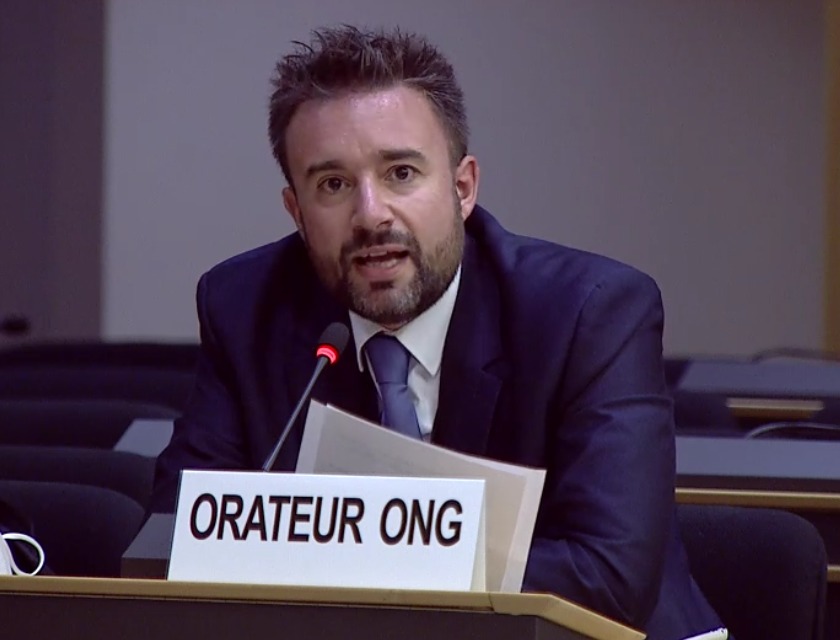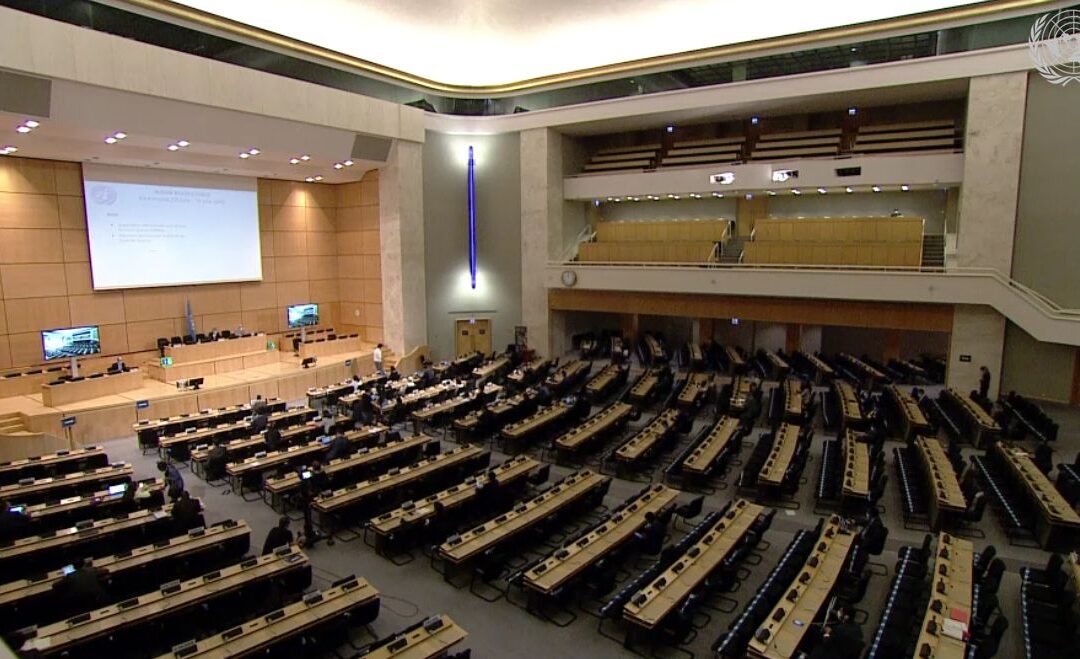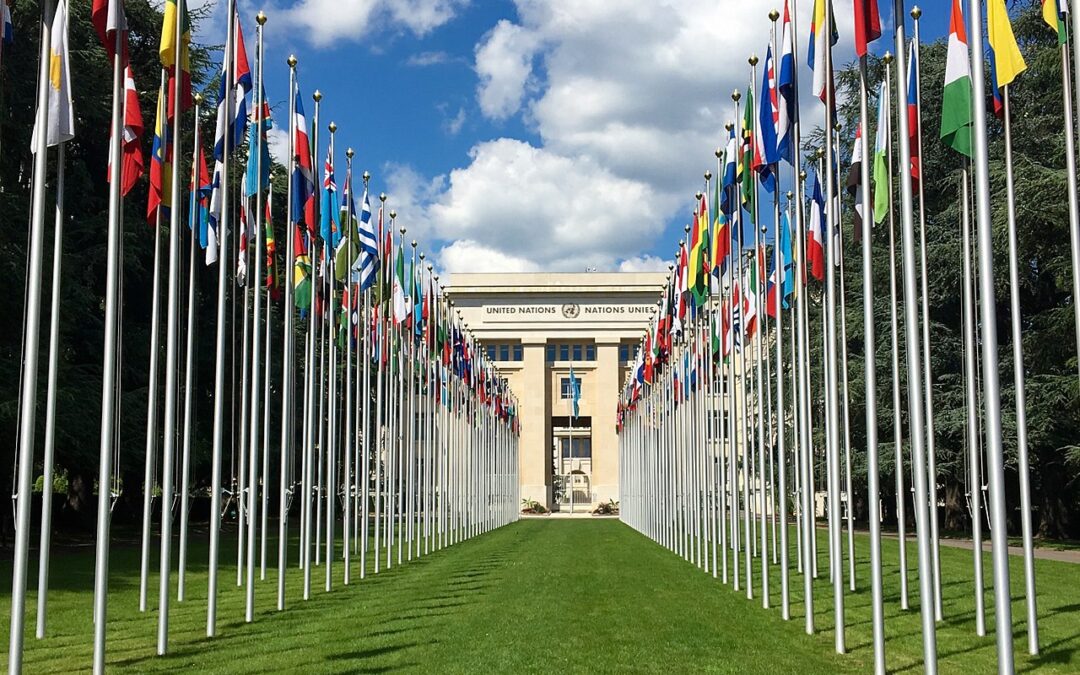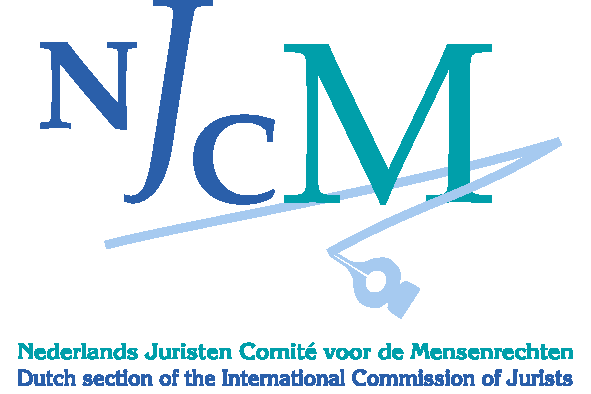
Sep 21, 2020 | Advocacy, Non-legal submissions
At the interactive dialogue with the Working Group on Enforced and Involunatary Disapparances during the UN Human Rights Council in Geneva, the ICJ has called on Tajikistan and Turkey to comply with the recommendations by the Working Group and to end practices of abduction and forced return.
The Chair of the Working Group on Enforced and Involuntary Disapperances in his replies to the questions pressed Turkey to implement the recommendations of the Working Group’s report.
The oral statement read as follows:
Mr Vice-President
The International Commission of Jurists (ICJ) welcomes the report by the Working Group on the follow up of its recommendations on its visit to Turkey (A/HRC/45/13/Add.4) and shares its concerns at the lack of implementation by the Turkish authorities and at the State-sponsored practice of “abductions and forced returns” (para 8). The ICJ agrees with the Working Group that a critical factor that fosters impunity in Turkey is “the lack of judicial independence and impartiality” (para 17).
The ICJ also welcomes the Working Group’s report on Tajikistan (A/HRC/45/13/Add.1). The ICJ shares its concern at the forcible return of Tajikistan nationals to the country, involving enforced disappearances (para 53), the harassment of lawyers (para 9) including the lengthy imprisonment of Buzurgmehr Yorov and Nuriddin Makhkamov, the obstruction of lawyers’ access to detainees, and inadequate judicial review of detention (para 47).
The ICJ urges both countries to fully implement the recommendations of the Working Group and particularly:
- on Tajikistan, to end forced return of their nationals, and to ensure prompt and confidential access to lawyers for detainees and prompt and independent judicial review of detention.
- on Turkey, to stop all practices of abduction and forced return from other countries and to restore the independence of its judiciary.

Sep 17, 2020 | Advocacy, Non-legal submissions
At the Human Rights Council, the ICJ highlighted deepening impunity for gross human rights violations in Sri Lanka, and the need for a UN investigative mechanism.
The oral statement was made in the interactive dialogue with the UN Special Rapporteur on the promotion of truth, justice, reparation and guarantees of non-recurrence, at which the current Rapporteur presented the report of his predecessor, Pablo de Greiff, on a visit to Sri Lanka in 2017.
The statement read as follows:
“The ICJ welcomes this opportunity to discuss the report of your predecessor’s 2017 visit to Sri Lanka.
We share the report’s assessment that “none of the constituent elements of a transitional justice policy are fully in place.” Indeed, the situation has only further deteriorated since 2017, further entrenching the denial of justice to victims.
Sri Lankan courts remain unable and unwilling to address the impunity of security forces for crimes under international law. We echo the report’s observation ‘in its current state, the criminal justice system in Sri Lanka is inadequate and flawed’.
This will only worsen if the proposed 20th Amendment to the Constitution is passed. The President, himself credibly accused of war crimes and crimes against humanity during his tenure as Defence Secretary from 2005-2015, would have unilateral power to appoint the judges of the superior courts, the Judicial Service Commission, Attorney General and the Inspector General of Police. This would further undermine any independence and impartiality in the already institutionally weakened judiciary.
Given the abject failure of Sri Lanka to implement a credible accountability mechanism, and its ongoing betrayal of the rule of law, the ICJ calls on the Council to establish an international accountability mechanism, and we urge you Mr Special Rapporteur to closely monitor and analyze the country situation in coordination with other mandate holders.
Thank you”

Aug 28, 2020 | News
The ICJ contributed to and has endorsed a groundbreaking new UN standard aimed at ensuring effective access to justice for persons with disabilities, published today in Geneva.
Published today by the Office of the UN High Commissioner for Human Rights, the International Principles and Guidelines on Access to Justice for Persons with Disabilities were adopted jointly by the UN Special Rapporteur on the rights of persons with disabilities, the Committee on the Rights of Persons with Disabilities, and the Special Envoy of the UN Secretary-General on Disability and Accessibility. They have been endorsed by the ICJ and the International Disability Alliance.
The ICJ contributed to the development of the Principles and Guidelines, including through participation in expert consultations alongside disability rights experts, organizations of people with disabilities, State representatives, academics, and other judicial and legal practitioners. The ICJ also plans to assist with promotion and implementation of the Principles and Guidelines at the global and national levels.
Building on the provisions and interpretations of the Convention on the Rights of Persons with Disabilities and other international standards and best practices, the document affirms ten key principles of access to justice for people with disabilities and sets out detailed guidelines on how to implement each one.
The Principles and Guidelines are intended to be a practical tool to help inform the design and implementation of justice systems that provide equal access to justice for persons with disabilities, in line with international human rights standards.
The Principles and Guidelines can be downloaded by clicking here.
Further information about the process of their development is available here, and the UN press release announcing their publication is here.

Jul 16, 2020 | Advocacy, Non-legal submissions
The ICJ and its Dutch national section today highlighted findings and recommendations of the UN Special Rapporteur on racism, racial discrimination and xenophobia, on her visit to the Netherlands.
The statement was prepared for the ICJ by its Dutch national section, Nederlands Juristen Comité voor de Mensenrechten (NJCM), for today’s interactive dialogue with the Special Rapporteur at the UN Human Rights Council, but could not be read out during the meeting due to limited time allowed for civil society statements:
“Madam Special Rapporteur,
The ICJ highly appreciates your dedicated work in the fight against racism, and welcomes your report following your country visit to the Netherlands last October. During this visit you met our colleagues from the Dutch section of the ICJ, who have prepared and join in this statement.
The ICJ shares your concern that the highest levels of political office in the Netherlands do not reflect the racial, ethnic and cultural diversity of its society. The extent in which under-representation still plays a role in the Netherlands is worrisome. This is reflected in the lack of inclusive and non-discriminatory policies.
The ICJ agrees that a full account of the history of slavery and colonialism is fundamental in Dutch education. The essence of this education must highlight how the exploitation of colonized peoples and territories normalized racial and cultural hierarchies. Racial relations in the Netherlands will not be understood in context without a fair and accurate account of history.
The ICJ commends you for addressing the systemic and institutional nature of racism within the Netherlands on an intersectional level and we call upon the government to fulfill its human rights obligations in this regard.
Madam Rapporteur could you share good practices in which governments collect data on ethnic minorities to help protect human rights while protecting against misuse of the data?
Thank you.”

Jul 14, 2020 | Advocacy, Non-legal submissions
At the UN Human Rights Council, the ICJ today highlighted the need for a range of measures to effectively address the continuing impunity for gross violations of human rights in Myanmar.
The oral statement, which was delivered in an interactive dialogue with the UN Special Rapporteur on the situation of human rights in Myanmar, read as follows:
“The ICJ welcomes and shares the concerns of the final report of the previous Special Rapporteur Ms Yanghee Lee, particularly with the lack of accountability for gross human rights violations against Myanmar’s ethnic minorities.
The ICJ recalls Myanmar’s international human rights obligations, including under the Convention on the Prevention and Punishment of the Crime of Genocide and the provisional measures ordered by the International Court of Justice in The Gambia v. Myanmar case.
The ICJ underscores that directives enjoining government officials from engaging in further acts of genocide are not sufficient without comprehensive legal and constitutional reform to end impunity. This includes the amendment of laws such as the 1959 Defence Services Act and the 2014 Myanmar National Human Rights Commission Law.
National institutions continue to fail to conduct credible investigations into allegations of widespread human rights violations by the military against ethnic minorities. The final report of the Independent Commission of Enquiry, which was not made public, was transmitted to the Attorney General and the Commander-in-Chief of Myanmar’s Armed Forces, implying that military courts will take jurisdiction over at least some of the cases, inconsistent with Principle 29 of the UN Principles for the protection and promotion of human rights through action to combat impunity (UN doc E/CN.4/2005/102/Add.1/).
Mr Andrews, as the new mandate-holder, the ICJ would like to invite you to elaborate on your priorities and strategies for addressing the continuing impunity for such violations in Myanmar.”









